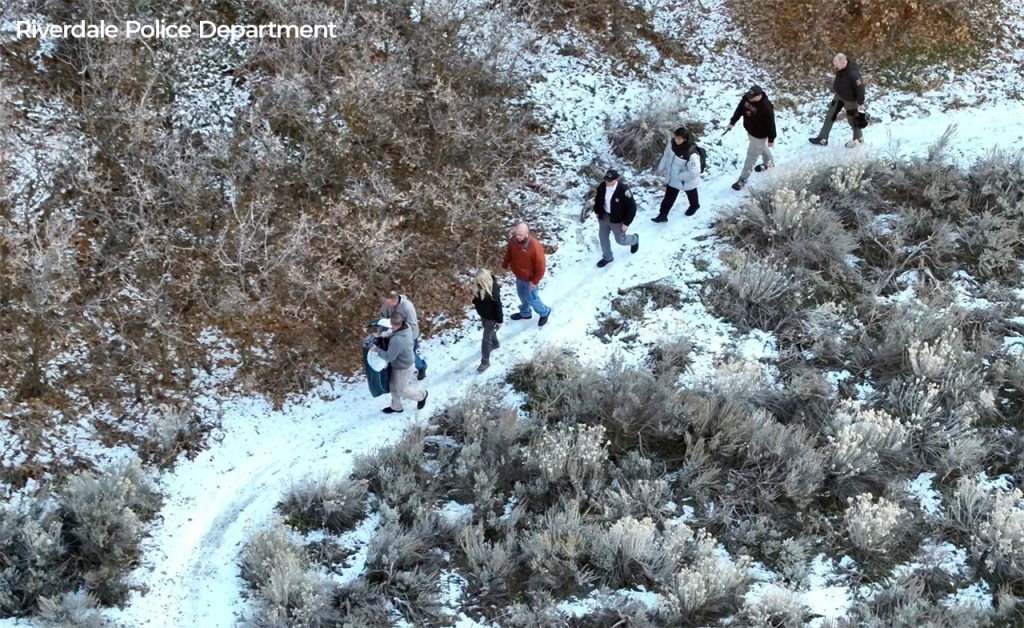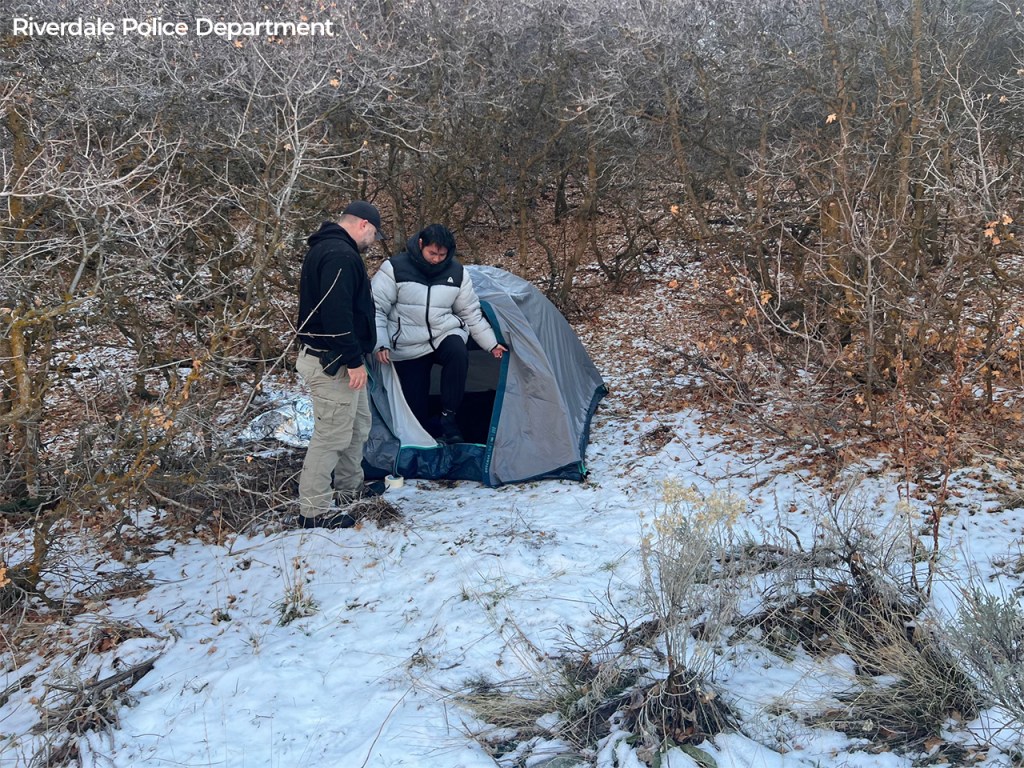
FBI warns of cyber kidnappings in US after Utah student becomes a target
By Jack Aylmer (Digital News Producer), Brock Koller (Senior Producer), Zachary Hill (Video Editor)
Media Landscape
See how news outlets across the political spectrum are covering this story. Learn moreBias Distribution
Left
Right
Untracked Bias
Technology has changed lives, giving users more opportunities to connect with one another and providing innovative approaches to everyday tasks. But while law-abiding citizens are using technology to make their lives easier, others are using it to commit crimes in ways once thought impossible.
That even goes for kidnapping.

Download the SAN app today to stay up-to-date with Unbiased. Straight Facts™.
Point phone camera here
Reuters reported in 2019 that there are, on average, fewer than 350 people under the age of 21 abducted by strangers in the country per year.
In 2022, the National Center for Missing & Exploited Children assisted law enforcement with 98 cases of non-family abductions.
All of these reported cases of kidnappings happened in the real world, which years ago might have been an odd thing to note. These days it’s a necessary differentiator, especially with the recent headlines coming out of Riverdale, Utah, of a 17-year-old foreign exchange student being a victim of cyber kidnapping.

In a statement on Thursday, Jan. 4, the FBI told Straight Arrow News that cyber kidnapping or virtual kidnapping “refers to a range of coercion schemes aimed at extorting quick ransom payments from victims who are manipulated to believe that their loved ones have been kidnapped or are at risk of being kidnapped.”
The FBI said, unlike traditional abductions, virtual kidnappers do not physically kidnap anyone.
“In a virtual kidnapping for ransom, there are multiple victims: The person or people who are being coerced over the phone to pay a ransom, as well as the alleged kidnapped victim who is separately coerced and unwittingly facilitates the perpetrator’s scheme by turning off their phones, refusing to contact family or law enforcement, agreeing to take photos of themselves or other victims or not leaving their location,” the FBI said.
In the case in Utah, police said the suspected cyber kidnappers contacted the parents of the 17-year-old foreign exchange student in China and sent them a photograph that appeared to show that their son had been abducted.
The parents sent the suspects approximately $80,000 to bank accounts in China after receiving continued threats.
The parents then contacted the student’s high school in Utah, which called the police.
As officers began their investigation, the FBI notified the police department of the criminal trend of cyber kidnapping.
The FBI told the Riverdale Police Department there have been several other similar cyber kidnapping cases recently in the United States, with foreign exchange students often targeted.
Authorities said the cyber kidnappers convince their victims under duress to take photos of themselves looking as if they are being held captive and then the images are sent to their families.
Riverdale police explained the victims comply with the kidnappers’ demands out of fear that their families will be harmed otherwise.
According to the FBI, in fiscal year 2022, the average ransom payment for virtual kidnapping cases was $11,140.
Days before Riverdale police received word of the alleged kidnapping, law enforcement in Provo, Utah, observed the victim carrying camping gear. They were concerned for his safety and brought him back to his host parents.
Riverdale police said, at that time, the victim was already being “manipulated and controlled” by the cyber kidnappers.
After the victim was reported kidnapped, police contacted the host family who was not aware he was missing; they said he had been heard in the home in the early hours of Dec. 28. Police searching the host family’s home found the camping equipment was gone.
Riverdale police and neighboring departments sent out search and rescue teams aided by drones to look for the student. They believed he was isolating himself at the direction of the cyber kidnappers.
“Why would he isolate himself? That’s exactly the reason,” Riverdale Police Chief Casey Warren said. “The captors want him to isolate himself from all society because they know there’s a high probability that law enforcement or police will be contacted, and once we contact Kai and know he’s safe, the game is up and the parents will know he’s safe so they won’t send more money.”
A Riverdale police detective sergeant searching on foot came across the victim inside a tent in a wooded area up the mountainside. Investigators said the victim was alive, very cold and scared, but relieved to see police. He was checked out and cleared of any major medical concerns.

The student wanted to speak to his family to let them know he was safe. He also asked for a warm cheeseburger. Riverdale police officers were happy to oblige with both requests.
In its statement on cyber kidnapping, the FBI said, “The FBI and our partners continue to see this threat affect American citizens. If you or someone you know has been victimized by this crime, please contact law enforcement immediately. You can report the crime through the Internet Crime Complaint Center at https://www.ic3.gov/.”
Authorities said those who believe they are becoming a target of cyber kidnapping should not send any money and should discontinue contact with the suspects.
The FBI said many victims of virtual kidnapping cases do not report the crime, either because they are embarrassed or they don’t consider the ransom they paid to be a significant amount.
The agency said even with the crime occurring in the virtual world, victims are traumatized by these events.
FBI investigating criminals posing as Chinese police officers
The FBI is also investigating criminals impersonating police officers from China to defraud Chinese students attending U.S. universities.
In a public service announcement, the FBI said the imposters use technology to “mask” their true telephone numbers and make it appear the call to the student is coming from a mobile telephone service provider, a large retailer, a delivery service, the Chinese Embassy or a consulate.
The criminals call the victims and alert them they are connected to a fraud investigation. They then transfer the call to someone impersonating a Chinese police officer. The suspects then direct the victim to consent to 24/7 surveillance due to the sensitivity of the case and to prove their innocence.
Unbiased news.
Directly to your inbox. Free!
Learn more about our emails. Unsubscribe anytime.
By entering your email, you agree to the Terms & Conditions and acknowledge the Privacy Policy.
The victim is then directed to wire a large sum of money to a Chinese bank account to prove their innocence or to post bail to avoid having to return to China. In some cases, the suspects instruct the victim to lie to their friends and families to obtain more money.
Those who believe they have been contacted by someone claiming to be a Chinese authority should contact their local FBI field office.
[JACK AYLMER]
THE NATIONAL CENTER FOR MISSING AND EXPLOITED CHILDREN ASSISTED LAW ENFORCEMENT WITH 98 CASES OF NON-FAMILY ABDUCTIONS IN 2022 – WITH 95 OF THEM BEING RESOLVED.
ALL OF THOSE REPORTED CASES OF KIDNAPPINGS HAPPENED IN THE REAL WORLD — WHICH YEARS AGO MIGHT HAVE BEEN AN ODD THING TO NOTE.
BUT THESE DAYS IT’S A NECESSARY DIFFERENTIATOR – ESPECIALLY WHEN IT COMES TO CASES SUCH AS THE RECENT REPORTED KIDNAPPING OF A 17-YEAR-OLD FOREIGN EXCHANGE STUDENT IN UTAH.
AUTHORITIES SAY IT TURNED OUT THE TEEN WAS A VICTIM OF A SCHEME KNOWN AS CYBER KIDNAPPING – JUST ONE OF SEVERAL CASES THE FBI HAS BEEN INVESTIGATING IN THE UNITED STATES.
IN A STATEMENT TO STRAIGHT ARROW NEWS, THE FBI SAYS CYBER KIDNAPPING OR “VIRTUAL KIDNAPPING REFERS TO A RANGE OF COERCION SCHEMES AIMED AT EXTORTING QUICK RANSOM PAYMENTS FROM VICTIMS WHO ARE MANIPULATED TO BELIEVE THAT THEIR LOVED ONES HAVE BEEN KIDNAPPED OR ARE AT RISK OF BEING KIDNAPPED.”
THE FBI SAYS – UNLIKE IN TRADITIONAL KIDNAPPINGS – THESE VIRTUAL CRIMINALS DO NOT ACTUALLY KIDNAP ANYONE.
IN THE CASE OF THE FOREIGN EXCHANGE STUDENT NAMED KAI (K-EYE) – POLICE SAY THE CYBER KIDNAPPERS CONTACTED HIS PARENTS LIVING IN CHINA TO MAKE THEM BELIEVE THEIR SON WHO HAD GONE MISSING IN UTAH WAS ABDUCTED.
[CASEY WARREN]
“We learned that they had received a photograph from Kai from his phone and it was a photograph that made it appear as if he was being kidnapped or held captive. After that they started to receive phone calls from the alleged kidnapper demanding a ransom.”
[JACK AYLMER]
THE FBI SAYS VICTIMS ARE PRESSURED BY THE SUSPECTS TO TAKE IMAGES OF THEMSELVES APPEARING TO BE KIDNAPPED TO PROTECT THEIR FAMILIES FROM HARM.
THE STUDENT’S PARENTS SENT APPROXIMATELY $80 THOUSAND TO THE KIDNAPPERS.
ACCORDING TO THE FBI – THE AVERAGE RANSOM PAYMENT FOR VIRTUAL KIDNAPPING CASES IN 2022 WAS OVER 11 THOUSAND DOLLARS.
THE FBI’S STATEMENT TO STRAIGHT ARROW NEWS CONTINUING:
“IN A VIRTUAL KIDNAPPING FOR RANSOM, THERE ARE MULTIPLE VICTIMS: THE PERSON OR PEOPLE WHO ARE BEING COERCED OVER THE PHONE TO PAY A RANSOM, AS WELL AS THE ALLEGED KIDNAPPED VICTIM WHO IS SEPARATELY COERCED AND UNWITTINGLY FACILITATES THE PERPETRATOR’S SCHEME BY TURNING OFF THEIR PHONES, REFUSING TO CONTACT FAMILY OR LAW ENFORCEMENT, AGREEING TO TAKE PHOTOS OF THEMSELVES OR OTHER VICTIMS, OR NOT LEAVING THEIR LOCATION.”
POLICE SOON DISCOVERED THE TEEN HAD BEEN SEEN DAYS EARLIER BEFORE HE WAS REPORTED MISSING WITH CAMPING GEAR. POLICE SAY HE WAS BEING MANIPULATED BY THE KIDNAPPERS AT THE TIME.
SEARCH TEAMS COMPLETE WITH DRONES SET OUT TO LOOK FOR THE TEEN – AN OFFICER CAME ACROSS HIM SET UP IN A TENT ON A WOODED AREA IN THE MOUNTAINSIDE. POLICE SAY HE WAS COLD, SCARED AND RELIEVED TO SEE THEM.
[CASEY WARREN]
“The big question is why was Kai camping? Why would he isolate himself. That’s exactly the reason. The captors want him to isolate himself from all society because they know there’s a high probability that law enforcement or police will be contacted and once we contact Kai and know he’s safe the game is up and the parents will know he’s safe so they won’t send more money.”
[JACK AYLMER]
THE FBI TELLS STRAIGHT ARROW NEWS THAT THEY CONTINUE TO SEE THE THREAT OF CYBER KIDNAPPING AFFECT AMERICAN CITIZENS.
THEY SAY IF ANYONE FEELS THEY ARE A VICTIM TO DISCONTINUE COMMUNICATION WITH THE SUSPECTS AND CONTACT LAW ENFORCEMENT IMMEDIATELY.
Media Landscape
See how news outlets across the political spectrum are covering this story. Learn moreBias Distribution
Left
Right
Untracked Bias
Straight to your inbox.
By entering your email, you agree to the Terms & Conditions and acknowledge the Privacy Policy.
MOST POPULAR
-
 Getty Images
Getty Images
Democrats in Congress receive lowest approval rating in Quinnipiac poll history
Watch 2:599 hrs ago -
 Getty Images
Getty Images
AG Bondi reviewing Epstein documents for release, could hold client list
Watch 1:4810 hrs ago -
 Getty Images
Getty Images
Speaker Johnson won’t support DOGE stimulus checks
Watch 2:0611 hrs ago -
 Reuters
Reuters
UN chief reveals his plan for peace in Haiti to Caribbean leaders
Watch 2:1513 hrs ago




